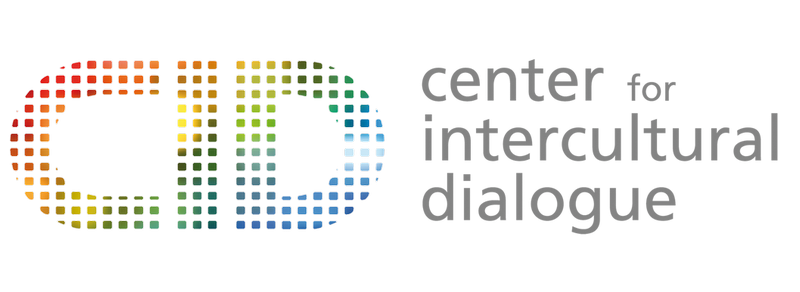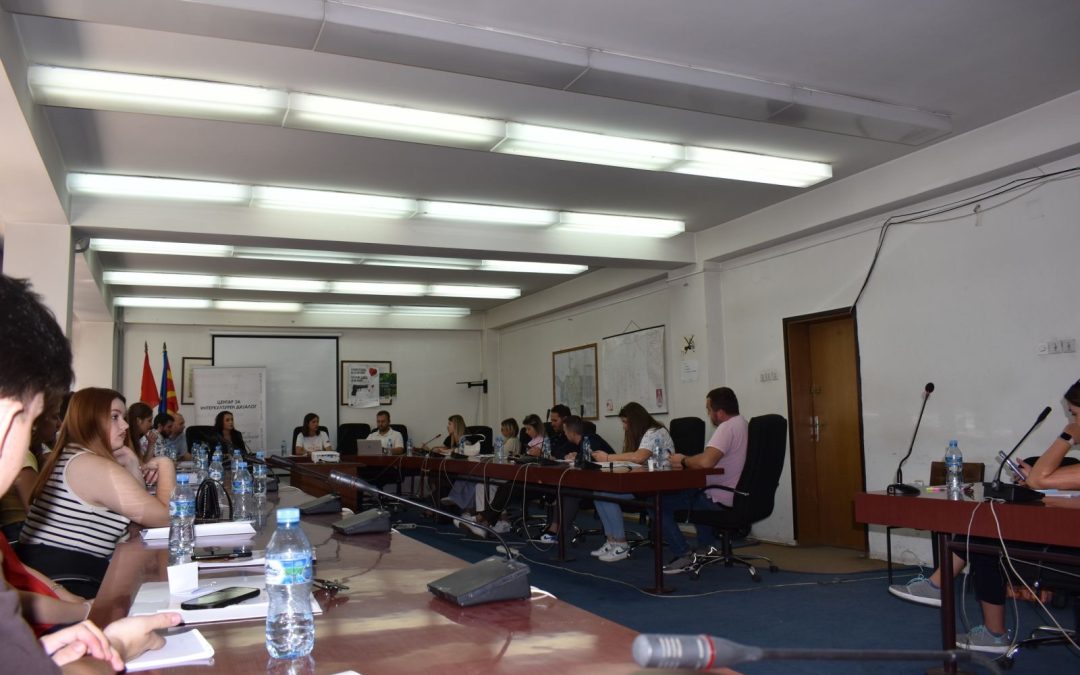On August 21st, a roundtable event took place, highlighting the importance of intercultural dialogue and volunteerism for community development. Hosted by the Center for Intercultural Dialogue, the event brought together representatives from various municipalities, youth organizations, and volunteers to discuss strategies and share best practices.
The event commenced with a registration period from 10:00 to 10:30, followed by a welcome address by Nami Isaki, the Executive Director of the Center for Intercultural Dialogue. Isaki’s address set the tone for the day, emphasizing the critical role of intercultural dialogue in fostering community cohesion and understanding.
Jovana Jordanovska kicked off the series of presentations with an introduction to the “Inter EU” project. This initiative focuses on enhancing intercultural communication and cooperation across Europe, aiming to bridge cultural divides and promote a sense of European identity among youth.During the roundtable event, Jovana Jordanovska provided an in-depth presentation on the “Inter EU” project, a significant initiative aimed at fostering intercultural dialogue and cooperation across Europe. The project is designed to bridge cultural divides by promoting mutual understanding, respect, and shared values among young people from different European countries.
Jordanovska began her presentation by outlining the primary objectives of the “Inter EU” project. The initiative seeks to create a platform for young people from diverse cultural backgrounds to engage in meaningful dialogues, share experiences, and learn from one another. By doing so, the project aims to build a stronger sense of European identity and solidarity, particularly among the youth who are the future leaders of the continent.
Jordanovska’s presentation was particularly compelling as she shared several success stories from the “Inter EU” project. She spoke about young participants who, after taking part in the project, went on to become advocates for intercultural dialogue in their own communities. For instance, she highlighted a group of participants who, inspired by their experiences, launched a campaign to promote intercultural education in schools in their hometowns.
She also discussed the challenges faced by the project, such as language barriers, cultural misunderstandings, and logistical issues. However, she was quick to point out that these challenges have also been learning opportunities, allowing the project to evolve and adapt to the needs of its participants.
In conclusion, Jovana Jordanovska emphasized that the “Inter EU” project is more than just an initiative; it is a movement towards a more inclusive and connected Europe. She called on the attendees to support such initiatives and to continue fostering environments where young people can come together, learn from each other, and work towards a future marked by unity and understanding. Her passionate advocacy left a lasting impression on the audience, reinforcing the importance of such projects in today’s increasingly interconnected wor
Following this, Andrijana Tasevska presented the “Municipalities – Friends of Volunteers” regulation. This guideline serves as a framework for municipalities to become more volunteer-friendly, encouraging local governments to create environments that support and promote volunteerism as a key component of civic engagement.
Gjorgji Milushev then introduced the “Local Youth Paths” manual, a resource designed to guide municipalities in establishing youth-friendly policies and creating opportunities for young people to engage in meaningful community activities. This presentation underscored the importance of nurturing local youth as active participants in their communities.
A highlight of the event was the session led by Martin Krstic, a youth officer from the Municipality of Kumanovo, who spoke on the significance of volunteering and intercultural dialogue for the development of a municipality. Krstic emphasized that fostering a culture of volunteerism and mutual understanding among different cultural groups could lead to stronger, more resilient communities.
Ivana Stojchevska provided insights on involving young people from diverse ethnic backgrounds in volunteer activities. Her session explored various strategies to make volunteerism more inclusive and accessible, ensuring that all youth have the opportunity to contribute to and benefit from community service.
Eugenia Geramitchevska concluded the presentations with a discussion on intercultural dialogue within the Municipality of Bitola. She shared specific initiatives undertaken by the municipality to enhance communication and cooperation among different cultural groups, highlighting the successes and challenges faced in these efforts.
The event concluded with a networking session and cocktail hour, providing attendees with the opportunity to connect, share experiences, and discuss future collaborations.
Overall, the roundtable event was a resounding success, underscoring the vital role of intercultural dialogue and volunteerism in fostering community development and social cohesion. Attendees left with a renewed sense of purpose and commitment to promoting these values in their respective municipalities and organizations.

